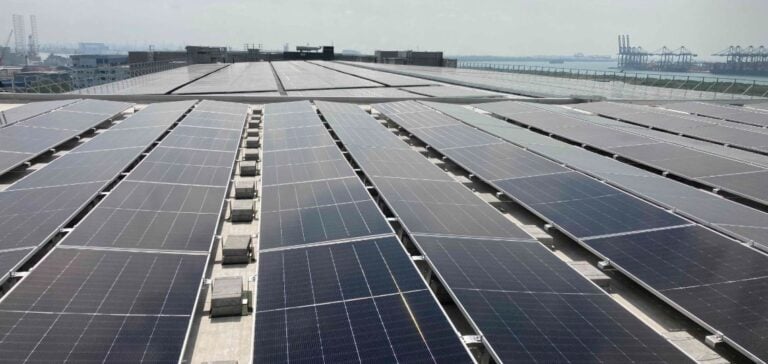Tokyo Electric Power Company Holdings Inc. (TEPCO HD) formalised on May 15 a financing agreement with Bank SinoPac, based in Taiwan, for an initial amount of SGD9.5mn ($7mn), extendable to SGD35mn ($26mn). The funding will support the development of 40 megawatts of rooftop solar capacity in Singapore through a dedicated project vehicle established with logistics group ESR Group Limited.
A portfolio financing structure
The chosen financial structure is a portfolio asset project financing model, allowing the joint venture to group several installations under a single contractual framework. The initial funded capacity will reach 10 MW, with a plan to scale to 40 MW at a later stage. This marks TEPCO Group’s first project financing initiative under this structure.
The agreement enables the special purpose vehicle to secure the necessary resources to deploy photovoltaic systems and to enter into direct electricity sale contracts with local consumers. These Power Purchase Agreements (PPAs) will provide long-term revenue streams and support the progressive profitability of the installations.
Regional solar strategy expands for TEPCO
TEPCO HD plans to reach a total rooftop solar capacity of 100 MW across the Asia-Pacific region, with Singapore representing the first phase. The company is executing this strategy through its wholly owned subsidiary, TEPCO Global Energy Pte. Ltd., headquartered in Singapore.
It also aims to expand operations to Australia, a market known for high energy activity. In this market, TEPCO plans to introduce storage battery systems and intelligent energy management solutions under its “TEPCO Area Energy Management” initiative.
Structured partnership with ESR
The partnership between TEPCO HD and ESR seeks to develop localised low-emission energy solutions, leveraging ESR’s logistics and commercial real estate expertise. TEPCO stated that the cooperation may extend to other regional markets.
According to the statement, this operation would help consolidate distributed renewable energy production in densely populated urban areas, addressing growing demand for localised electricity supply in commercial and industrial centres.






















